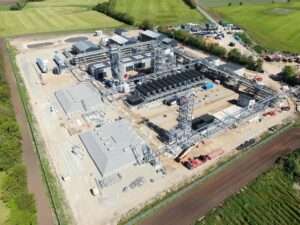Metafuels plans eSAF facility in Denmark together with European Energy

Metafuels AG, a Swiss aviation tech company, has signed an agreement with European Energy to set up a synthetic sustainable aviation fuel (eSAF) facility near Padborg in southern Denmark.
The new facility is set to be constructed adjacent to a future Power-to-X facility from European Energy.
The facility will be able to produce approximately 12,000 litres of eSAF daily.
“European Energy is a key partner for us as we look to take the idea of eSAF from concept to reality - this can drastically cut emissions in the aviation sector, which is one of the hardest to decarbonise. This is a major milestone in our development process and a real-world step towards affordable eSAF replacing kerosene, and its impact on the planet,” said CEO of Metafuels, Saurabh Kapoor.
This facility is a component of a broader effort to meet the aviation industry's climate targets through the European Union’s RefuelEU Aviation initiative and the Carbon Offsetting and Reduction Scheme for International Aviation (CORSIA).
Expanding the Role of e-SAF in Achieving Aviation Climate Goals
Metafuels’ scalable aerobrew technology, converts sustainably produced methanol to jet fuel. It features high energetic efficiency and ultra-high conversion of carbon into jet fuel with up to 90% reduction of life cycle emissions compared to conventional jet fuel.
As a drop-in fuel this technology does not require aircraft re-engineering or repurchasing and is compatible with existing fuelling infrastructure.
European Energy is currently developing a Power-to-X facility in Padborg – the plan for the facility is that it will have more than three times the output of the current Power-to-X facility in Kassø constructed by European Energy.
“Reducing the climate impact of aviation fuels through renewable energy is an important part of the green transition.
"Accounting for more than 2% of global CO2-emissions, the aviation sector is another area where green methanol through conversion to sustainable aviation fuel can play a major role in the decarbonisation,” said Emil Vikjær-Andresen, EVP and Head of Power-to-X in European Energy.
The justification for such technology is clear.
The aviation sector accounts for over 2% of global CO2 emissions—some 800 million tonnes. This is in addition to the production of other greenhouse gases and complex climate co-factors arising from the nature and altitude of the emissions which, when total contribution to global heating is considered, represents a contribution of around 3.5%.













